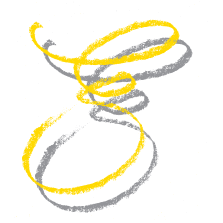It has taken Saffron Opera Group the best part of two years to complete its Ring cycle, but the long gaps between each thrilling instalment haven’t impeded the overall cohesion. This has been as much due to a continuity of sorts provided by having the same singers in some of the main roles as to the high and generally imperturbable quality of the orchestral playing under the project’s conductor, Michael Thorne. Saffron Opera’s directors, Paul Garland and Francis Lambert, must have worked their socks off raising money to keep ticket prices down. Another great plus has been Saffron Hall itself, with an auditorium giving clear contact with the performers and delivering an acoustic of warmth, clarity and depth—making it an ideal venue for opera in concert. As the cycle has evolved, so has the interaction between the singers, and the fact that some of the cast were performing nearly off-the-book heightened the impact no end. Götterdämmerung comes with so much explanatory hinterland that this concert performance created its own validity.
Brünnhilde and Siegfried’s first appearance instantly clinched the whole evening. Elaine McKrill sang Brünnhilde’s music with affecting directness. There was the occasional moment when a bit more bloom to her voice would have been welcome, but her consistent delivery and an alluring mix of brilliance and lyricism are what stick in the memory. ‘Zu neuen Taten’ set her authoritative style; she and the excellent Deborah Humble made the Waltraute encounter into a gripping mini-psychodrama, and she had plenty of stamina, volume and artistry left for a wonderful Immolation, the stature of which signed off this cycle in considerable style.
Her Siegfried was Jonathan Stoughton, who was even more impressive and bigger-voiced than he was in Saffron Opera’s Siegfried. He makes a lovely sound, easily conveying the hero’s innocence and vulnerability, and the way his voice slightly thickened and darkened in keeping with the plot was very finely judged, his top notes secure and attractive, triumphantly so in his Act 3 narration. There was that vital, sub-erotic charge between him and his Brünnhilde.
They were the jewels in the crown, but Julian Close’s magnificent Hagen added layers to the blackness at the core of Götterdämmerung. Close’s voice is huge, as though with a built-in echo, and his scene with Nicholas Folwell’s Alberich had a Beckettian bleakness to it. The Gunther and Gutrune sung by Charles Johnston and Cara McHardy were as weak and corrupt as Wagner would have wished. Johnston’s suave baritone characterized Gunther impeccably. McHardy played Gutrune to the hilt, possibly overdoing the seductive pouting and fluttering eyelashes, but she has quite a voice on her, of Brünnhilde aspiration. The three Norns—Emma Curtis, Harriet Williams and Catrin Aur—launched the first act with some marvellously dark, sonorous singing, balanced at the end by the Rhinemaidens of Rachel Chapman, Victoria Simmonds and Niamh Kelly. The chorus was too small to do full justice to the vassals’ summons.
Michael Thorne has an odd conducting style, emphatically beat-driven and, I’d have thought, very tiring, but the results from the Saffron Opera Group Orchestra, a mixture of amateur and professional players complete with a retinue of six harps, had the necessary Wagnerian pace and character, and they delivered a Funeral March of considerable grandeur. Next up for Wagner and Saffron Opera is Parsifal, in September 2018.
